Why Menopause Might Be Making Your Skin Age Faster and How to Reverse It

Skin changes are common during menopause, with many women noticing a difference in both appearance and texture. “There is a decrease in both collagen and elastin in the skin,” dermatologist Julia Marie Mhlaba, MD, tells Northwestern Medicine. “This happens rapidly at the beginning of menopause and the rate slows with time. The reduction in collagen and elastin can lead to skin thinning, wrinkling, and sagging.” Thankfully, there are solutions available for women who want to preserve the look and feel of their skin. Here’s what the experts say.
RELATED: Doctors Share How to Relieve Menopause Hot Flashes Naturally.
Apply Sunscreen Every Day
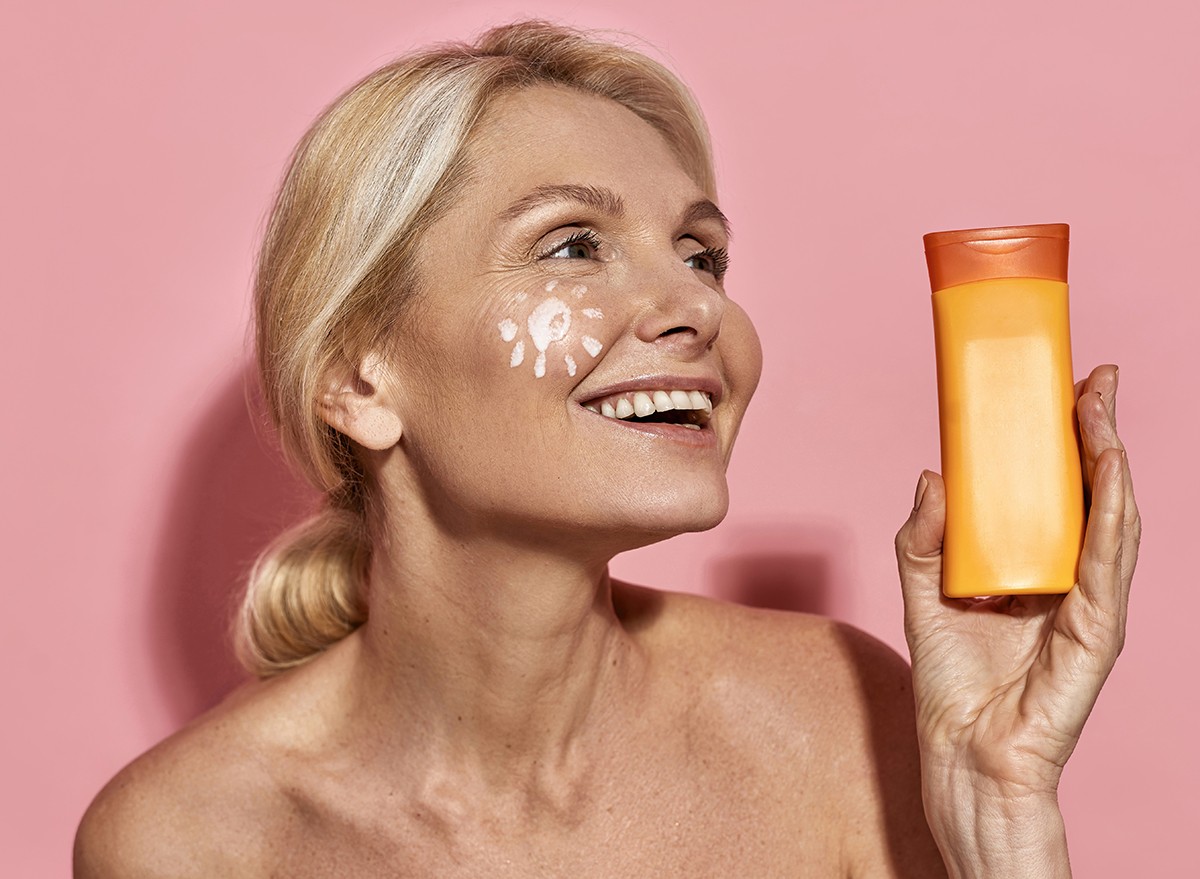
If you’ve been lax about protecting your skin from the sun, now is the time to become diligent about it. “Apply sunscreen every day before going outdoors. To give your skin the protection it needs, use a broad-spectrum sunscreen with SPF 30 or higher,” says the American Academy of Dermatology (AAD). “Apply it to all skin that clothing won’t cover. This can help fade age spots, prevent new spots from forming, and reduce your risk of getting skin cancer.”
Switch Up Your Cleanser
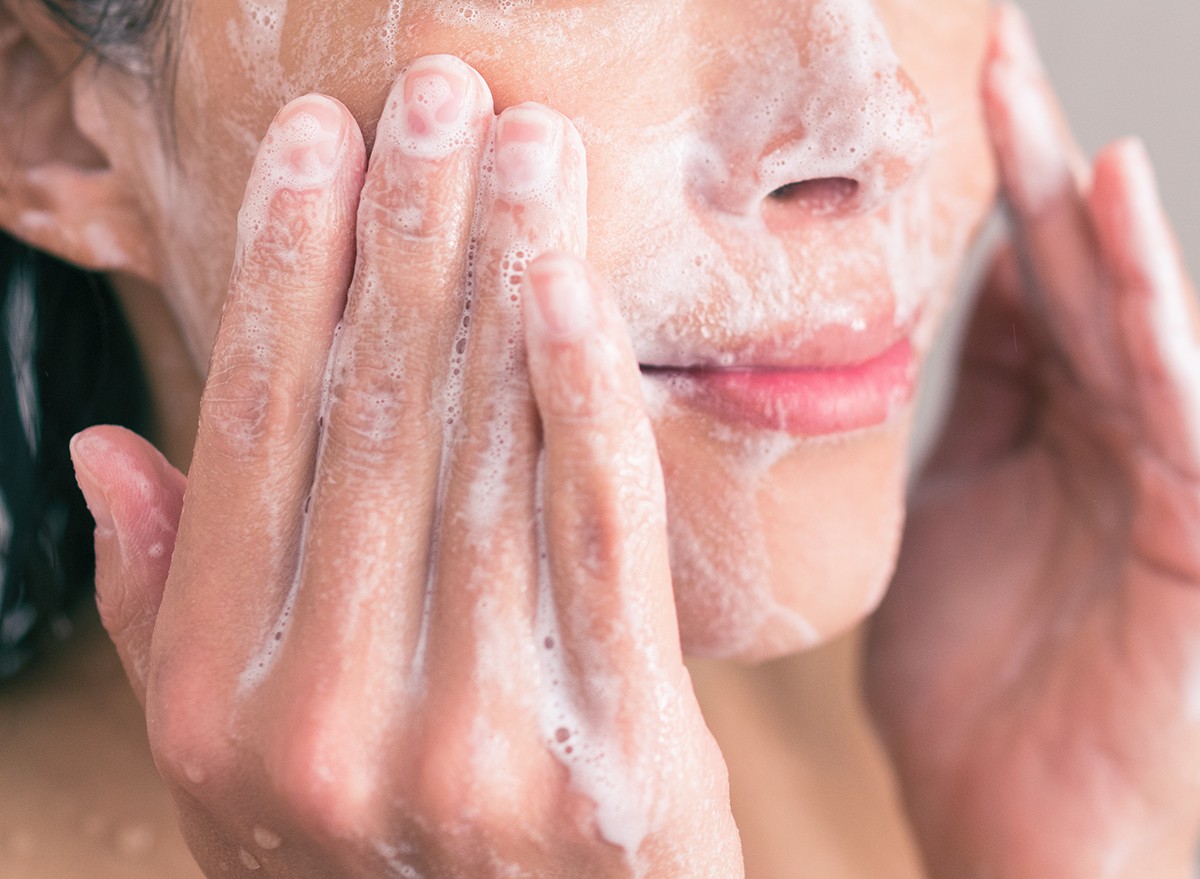
Your regular cleanser may not be as effective during menopause. “Menopause is a natural part of life and cannot be prevented, nor can the related changes to your skin be completely avoided,” says Lindsey Hunter-Ellul, MD, via Westlake Dermatology & Cosmetic Surgery. “Some soaps can be too drying for mature skin. Instead, use a mild hydrating cleanser. If you’re battling hormonal acne, choose a cleanser with salicylic acid, which can help dissolve oil and debris that’s trapped in pores.”
Stay Hydrated

Drink plenty of water for skin health. “To enhance hydration levels, try incorporating hydrating foods into your diet,” according to Kari Gran Skincare. “Water-rich fruits and vegetables such as watermelon, cucumber, apples, and oranges can contribute not only to your fluid intake but also provide essential vitamins and antioxidants that support overall skin health. A tip I have found helpful is to drink water first thing in the morning when you wake up, before you’ve had your morning coffee.”
Use the Correct Serums
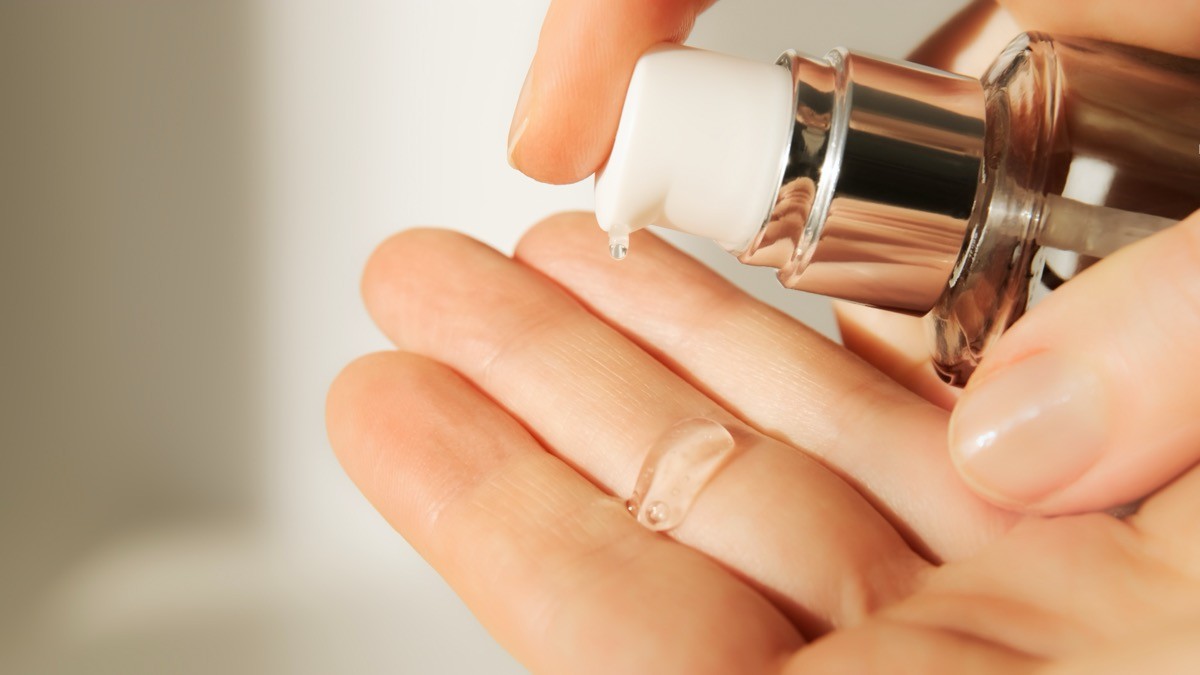
Menopausal skin needs special attention when it comes to serums. “Add an anti-aging serum to your skincare routine,” says Dr. Hunter-Ellul. “Look for ingredients like retinol, vitamin C, niacinamide, stem cells and growth factors or other anti-aging peptides. Certain serums brighten the skin and boost collagen production which can lead to a smoother skin appearance.”
RELATED: 7 Best Menopause Supplements.
Healthy Fats
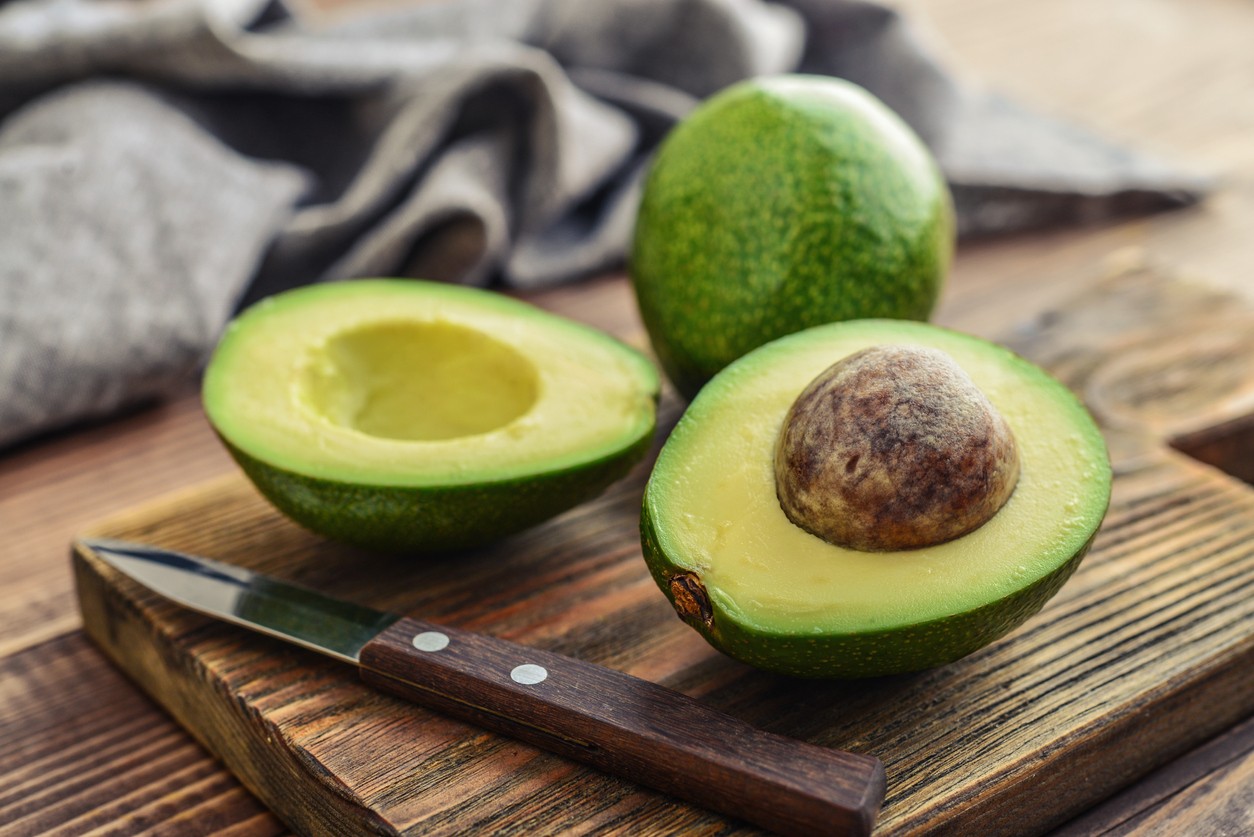
Eating plenty of healthy fats is vital for glowing skin and good health.”Essential fatty acids, such as omega-3 and omega-6, are vital for maintaining skin moisture and elasticity,” according to Kari Gran Skincare. “Itchy, dry skin can be a sign of not getting enough essential fatty acids in your diet. They are called essential as our bodies do not naturally produce them, you must get them through food or supplements. Foods rich in healthy fats include fatty fish (like salmon and mackerel), avocados, nuts, and seeds. Not only are these omegas great for eat, but they are also beneficial to use on your skin.”
Regular Exfoliation
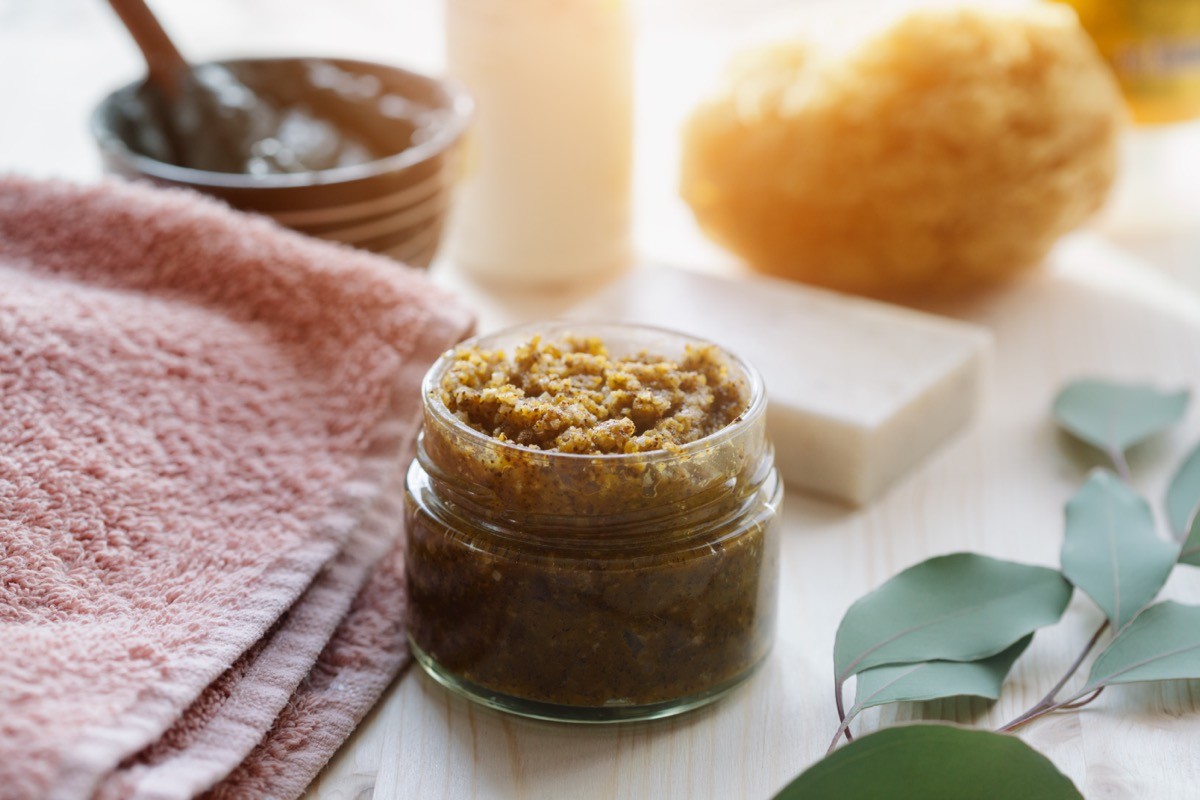
Exfoliate your skin on a weekly basis, experts advice. “Sun spots, acne and dry skin can all be minimized with regular exfoliation,” says Dr. Hunter-Ellul. “Once or twice weekly is often enough. Exfoliate too often, and you’ll be left with skin that’s either too dry and uncomfortable or overcompensating by producing too much oil in response to dryness.”